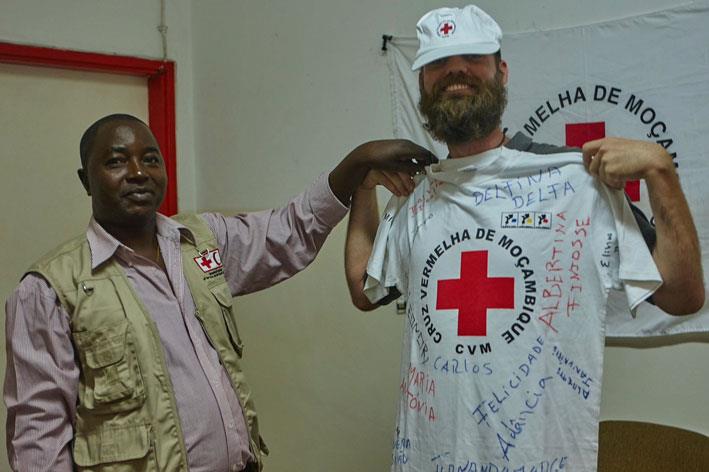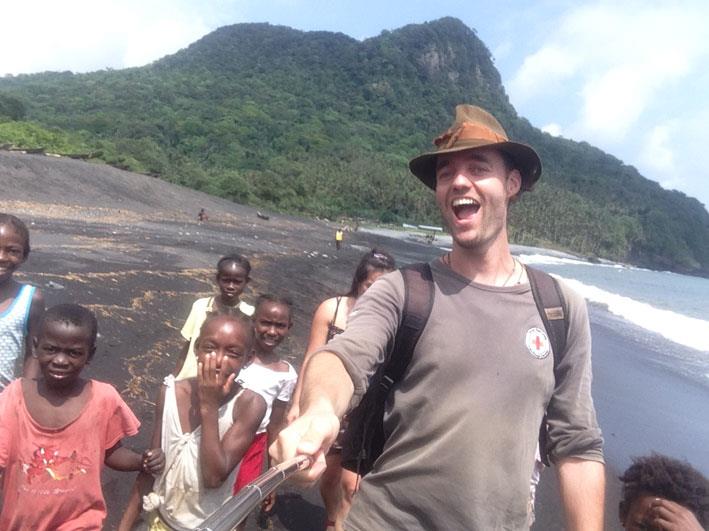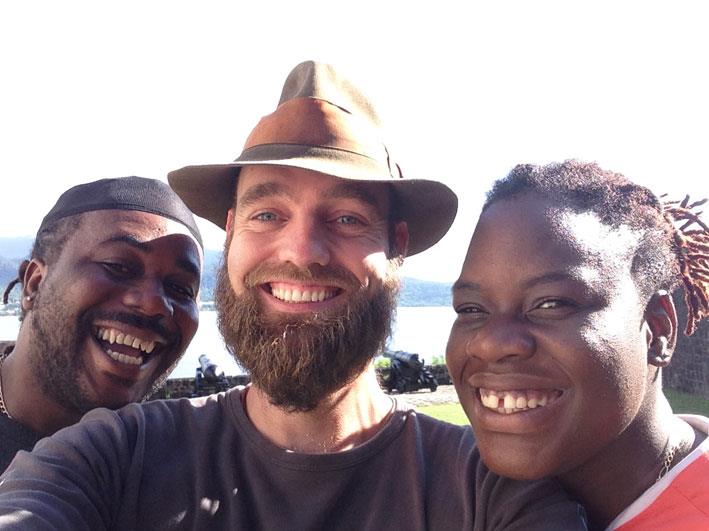Malta is the 128th country that Torbjorn C Pederson, 37, has stepped upon since he embarked on an unbroken journey around the globe, with the goal of becoming the first person to travel to every country in the world without flying, and without ever going home.
With the clothes and hair-length of a traveler, the Danish man has collected quite a variety of experiences with modes of transport he used to get from one country to another; an overloaded truck of people fleeing tension during a referendum in the Congo, a high performance luxury yacht to the Bahamas, a horse carriage, a container ship, a shrimp trawler, to name a few.
The email that sparked the idea
A logistical consultant by profession, the idea started during some idle period when he was waiting for new work to come in, and was ignited by an email from his father. “My father sends me a lot of emails, but this one stuck out,” Thor tells me.
“It was about a man who travelled to every country in the world in a few years, on a low budget, and it made me think that maybe it is possible to do in a lifetime. Before I always thought you had to spend your whole life traveling in order to go to every country, or that you had to be some sort of millionaire.”

He says that he was 34 at the time when the idea was born, and he had a girlfriend, apartment and career, and his friends all had children, money they owed to the bank and a house of their own. “They were all saying ‘don’t you think you are too old for this?’” he recalls, “but I also started thinking that when I am 45 I will be saying ‘I am too old now, I should have done it when I was 35’, and so I came to the conclusion that actually that may not really be a problem.”
He has 75 countries to go, and will then be the first person to have traveled the whole world by never leaving land and water. He explains how someone has traveled to every country before, however had flown home several times in between. “It suddenly became a window into accomplishing something which has never been done before,” he said.

Choosing the chicken bus
Thor is on a tight budget of €20 a day, and throughout the years has financed the travels through a variety of means, however a crowd funding campaign will soon begin to support him throughout the last third of his challenge.
He says that most of Europe was over the daily budget; however in general, it varies from country to country. He finds ways to cut costs, even if it means walking from Luqa to Sliema, or choosing a bus transporting chickens as opposed to one with comfy seats, air conditioning and Wi-Fi; “you take the chicken bus because it costs close to nothing,” he says, having learnt all the tricks.
Interestingly, he says how he has found Wi-Fi in every country, though the price for internet connections varied drastically. With just a phone and iPad as technological means, he explains the struggle to transfer photos to a computer, and his euphoria when he found out how to do it.

A stranger is a friend you have never met before
The project can be divided into three, he explains.
The first is logistics, which he calls ‘a full-time job in itself’. “Besides seeing where you are going to sleep, how you are going to travel and so on, other factors come into the equation,” he said, “what are you going to do about diseases? Where are you going to get your documentation from? There may be conflict in the country, there may be extreme temperatures.”
The second part of the project is that he is a Goodwill Ambassador with the Danish Red Cross, representing Red Cross values all around the world, where the organization marks its presence over 191 countries. He has also met up with Red Cross in Malta during his stay here, and tells me how impressed he is with the work they have managed to do, and the team they have succeeded in gathering.

The third factor is the promotion of the world in a positive sense. “If you pick up the newspaper today, it is all negative, “ he says, “disease, corruption, foreign threats and car accidents, except one story about some woman growing carrots in her garden to balance it out. But the world isn’t like that. When you travel around, when you are traveling in a bus, most people in the bus are not terrorists, must people in the bus don’t have a unique disease which is going to kill you. Most people are in the bus going to visit family or going to university, or going back home.”
“When you meet people constantly, you soon realize that most people are just people, who are never in the media because that’s boring to report. In Denmark, where I come from, people are exposed to a world in the media which basically seems on fire, and they get exposed to that every day on Facebook and on the TV and radio, and slowly they start believing that people in the world are inferior, or dangerous, and then they become scared or afraid. That’s really not the world we live in. A stranger is a friend you’ve never met before, and that theory keeps getting proven over and over and over again. Religion is a big part of life for a lot of people, politics is important for a lot of people, but behind that, it’s just people being people, taking selfies, updating facebook, going dancing, listening to music, falling in love, having discussions, talking about the weather. Really most people in the world just want to carve out a small portion of the world for themselves where they can be safe and get on with their lives.”

75% of Sudan is not Darfur
He explains that when in each country, he tries to learn positive things about the country he is in to promote it positively, to try to balance the negative information there is about a country and therefore balance it more. As an example, he says how Sudan is only known for the war in Darfur, because Darfur is what gets into the media. “This is not reality but it becomes our reality,” he says.
“So I went and investigated and found that the Darfur region is roughly 25% of Sudan, which means that 75% of Sudan is not Darfur. It’s one of the friendliest countries I’ve been to in my entire life, they have more pyramids than Egypt, there’s so much interesting history and culture. So people following me on social media, in the thousands, will learn that Sudan is something different to what they thought… it will also make people realize the good things about where they are living.”

What keeps you going?
Thor has been away from home for more than three and a half years, has had cerebral malaria and a variety of injuries. “I feel lonely many times and sometimes I forget what I am trying to achieve. Sometimes I lose focus and ask myself what the point of this is and question whether I should go home and be with my family and friends.”
“I want to have kids and start a family with my fiancée. I am gaining grey hair and losing more hair and I weigh out wanting a family and this project many times and I keep asking if it is worth it.” He explains how his girlfriend and recently, fiancée, visits him in some countries, and that his beard grows until the day before he sees his fiancée again.
I am in a hopeless situation many time, especially when it is countries like Libya, where everyone is encouraging me not to go, I had that situation with quite a few countries”.

What keeps you going?
“I don’t give up. I have travelled literally almost half way to the moon to sit where I am in front of you. Whenever people say you cannot do it, I still do it. I will find a way, I will continue this project and I will finish it.”
“There is a strong message in this which is do not give up, everyone is fighting something all the time. People write to me as they see me as an inspiration for perseverance by doing this project. What kind of message will I be sending if I quit the project and go home?” he says, adding that “this kind of impact is something I did not expect, people being inspired in this way.”
A Human GPS
We ask him what he feels he has learnt mostly from this three-year-and-growing-strong experience. “I feel I am a much richer as a person today,” is his reply. “I did not trust people so much in the beginning, but at this point, I have become a bit of an expert at reading people like having my own human GPS, knowing what type of person is in front of me within 30 to 40 seconds of meeting them, it is an instinct that has come about with repetition, it keeps me safe when there may be risk, such as in conflict areas, but otherwise just keeps re-affirming the factor that a stranger is a friend you have never met before.”
Thor hopes to have finished his travels by 2019.
Follow Thor’s story on his Facebook page ‘once upon a saga’.